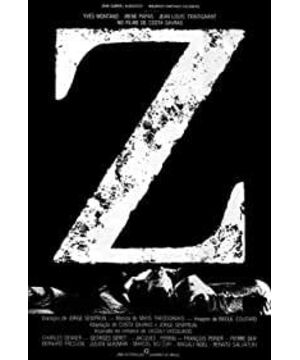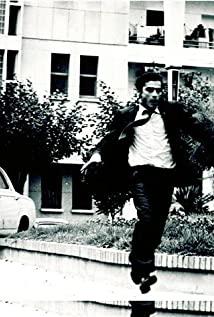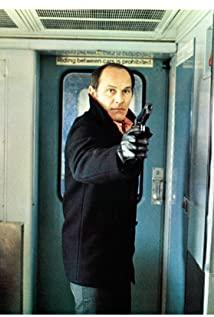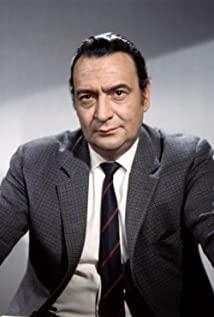There are always hints about the emergence of new genres. "The French society of the 1970s was like an invincible Second Empire," says film historian Cicrière. "The period was full of money worship, widespread urban life, and greed for money, resulting in many real estate scandals, a political class in power. Get caught up in it." So political narrative films came into being. The original goal of political films was to realistically represent French society. At the same time, trying to invent a new method of filmmaking, linking political ideology and film discourse to form a new coherence. As the historian Frodon puts it: "In this narrative cinema, the truly new 'political' cinema of this period, no longer seeks the pleasure of collective values, but seeks the appreciation of the individual - which can be understood as What is manipulated by language is ultimately seen as revolutionary.” French political films take an exclusive format, thoroughly examining social structures along the way, redefining the relationship between social order and individual power. After 1968, the success of Costa Gafras' "Z" (True Events) and "The Big Bad" and "Missing" series brought both cinema and politics together quickly into the limelight. Political films began to express specific things as an ideology or worldview, and films began to intervene in reality.
Similarly, another initiative to promote the production of the Costa Gafras film genre is the establishment of a political "Film Directors Guild". This association plays an invisible supervisory role, and it has influence to this day. Since the end of the war, apart from some scattered business cards such as Claire's "Freedom Belongs to Us" and Renoir's "Life Belongs to Us", the French film industry has never made a domestic "political film" in the full sense. And at a time when films were not interested in political change, what Costa Gafras achieved was all the more remarkable.
Costa Gavras is a Greek filmmaker who moved to France in 1952 and became a French citizen in 1968, having just started studying French literature at the Sorbonne with the intention of becoming a writer. Later, he switched to film studies and watched many films at the Film Archive in Paris. Costa Gafras discovered that film is also a kind of writing - creating through images. Then he entered the Higher Film Academy and became the assistant of many big-name directors, which accumulated experience for him in his subsequent creations.
During the preparation of "Z", the May storm broke out in Paris, France in 1968. The whole society is full of dissatisfaction with the government and the monopoly of capital, and students and workers protest collectively, which also marks the arrival of a new cultural, social and political era. Although the director stated that the outbreak of this movement was after the film was prepared, he did not change the content of his film because of it. But at the same time, it also shows that the director has long been keenly aware of the needs of society, and his films are exactly what the public needs to see and conform to everyone's ideas. When the director came to the museum in 2018, he mentioned in the exchange meeting that everyone in the "Z" crew was unpaid, but the actors were the most famous actors in Greece, France, and Italy at that time, and they were very willing to participate in this film because they were all I feel that this is the film that is needed now, and it needs to express what is conveyed. At the same time, as a member of the society, it is necessary to convey their own will.
The movie "Z" is also based on true events. The film tells the story of Ramblakis, a popular left-wing liberal member of the Greek Congress, who threatened the authorities in 1963 by organizing a rally against the deployment of Polaris missiles in Greece, and was assassinated in Thessaloniki in 1963. In a demonstration, he was killed, and the police not only failed to protect him, but also vigorously covered up the truth of the matter. The judge in charge of the investigation, despite the obstruction, solved the case and exposed the political conspiracy to the world. But the credits at the end of the film say that although the criminals were fined and sentenced, they were reinstated after a military coup the following year. Unlike the open endings of Italian neorealist films, Costa Gavras' films tell the ending truthfully, as the facts are. The film's innovation is that it combines European political awareness with responsibility and the dynamic, fast-paced style of Hollywood action films. The film is unforgettable with its sincere political responsibility and narrative style. Rather than being bound by dogmatic ideas, it calls into question the horribly distorted possibility of undemocratic control of ideology.
Costa Gavras' next film, "The Great Injustice," similarly denounced another social phenomenon—the Stalinist purges of Czechoslovakia in the 1950s. In it, he explores the nature of true communism. The protagonist is falsely accused of treason, and he faces the pain of whether he should take the trumped-up charge for the benefit of the organization. The film is less ups and downs, but its drama conveys an austere morality. With horrific factual evidence, the use of moral turpitude, forged trials, false confessions and Stalinist terror, and the endorsement of the French Communist Party at the time. Because Costa Gavras doesn't think much about patriotism, the outside world always criticizes him for this, and since he has no political intentions himself, this is not a big problem. He kept finding problems and reflecting on them. Martial Law, 1972, chronicled the CIA's activities in Uruguay during the Mitrion scandal, and explored striking conscience and moral ambiguities. And 1982's Disappearance, a story of a political dictatorship set in Argentina. This series of films demonstrates Costa Gafras' own cinematic style - combining the best features of at least three different genres - film noir horror, standard action saga and basic Police movie. Director Costa Gavras always presents his films with a tough truth-seeking stance.
Because "Z" focused on injustice, it led European audiences at the time to conclude that film, as a new medium, played a pivotal role in human perception. Therefore, in the opening subtitles of "Z", it is written in white words on a black background that "if the film has any similarity with the facts, the living or the dead, it is not a coincidence, but an intention." When watching it in the theater, it attracted the audience's laughter. Sounds, I am afraid that few directors will write such a tough sentence on the title of their films. Also in the movie "Missing", starting from the opening narration, the film shows the director's attitude with the sentence "The names of some characters in the film have been changed to protect the prototypes in their lives and to protect the film". It also shows the attitude of French cinema in the 1970s - intervening in reality, and constantly pursuing the truth. This not only protects the artistry and purity of the film, but also shows the authenticity of the event.
If you want to draw from reality, you must focus on reality. At the director exchange meeting of the China Film Archive, the 85-year-old director Costa Gavras expressed his recent concerns about the conflict between the European government and the public on the EU issue. He has been observing life. , and make full use of the medium of film to expose this pain point. When asked why a soft spot for the media and political Films, Gavras has a very famous answer: "All films are political films." "We are creative works - whether literature, film , or TV—to millions of viewers. I don't mean 'politics' in terms of rights, but in relation to people." As Costa Gavras In other words, the cruelty of political struggle and the ruthlessness of political persecution shown in his works are not attributable to the tragedies of the great era—these are helpless cruxes, but fall on specific individuals—after all, it is people themselves who do evil.
I thought of Bosu's sentence: "If words can't record the real history, then let the performance record the real human nature in history. I don't know anything about the history in the movie, but human nature seems familiar. This is destined to be submerged in entertainment. A lonely voice in the ocean of supremacy." Most political films usually use symbolism, metaphor, exaggeration, etc. to obscure facts and insinuate, but Costa Gavras' films are always open-minded. He focuses on calling attention to what is happening in our politicized world. It also asks questions and exposes the truth, so that the audience can find their own way to solve the problem. Today, we revisit the films of Costa Gavras more than 40 years ago. The films produced at that stage truly reflect the spirit of the times and keep pace with the pulse of the times. A great work must call for the stamp of the times, and Costa Gavras shows it all with its gestures.
- Written in May 2018
Reference: Remy Fournier Lonzoni. French Cinema [M]. Beijing: Commercial Printing House, 2009, 224.
View more about Z reviews











